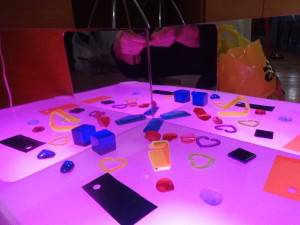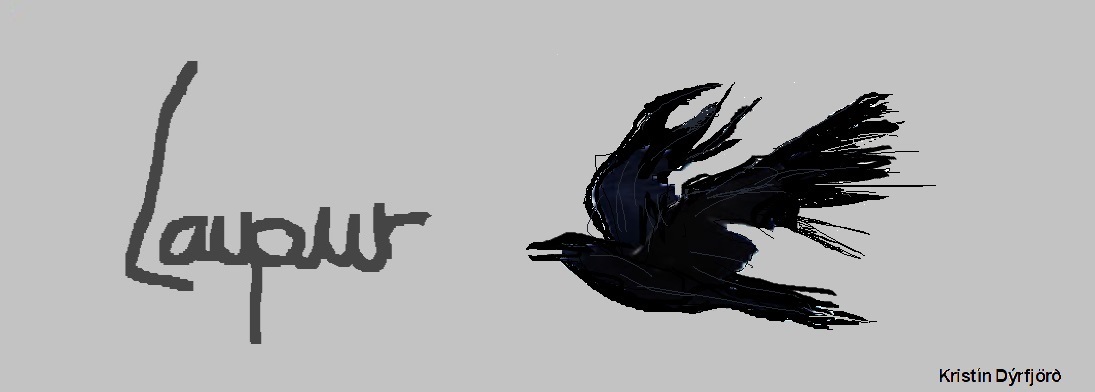The virus is just as a normal part of the play as any other shovel
„Virus has become a natural part of children’s play in my preschool,“ Guðrún Alda wrote to Kristín last February 5. At that time, there was daily news of the coronavirus disaster in China. We, as a nation, did not expect the coronavirus to spread to Iceland so quickly and become such a big part of daily lives and threats to both children and our selves.
The global population is facing its biggest catastrophe, probably since the Second World War, a disaster that scholars have named as a mass-trauma. Every day, news of illness and casualties are received throughout the media. On March 13, the British Prime Minister Boris Johnson appeared in the press saying that we are all collectively facing the loss of someone imminent because of the virus and the disease COVID-19.
Over the past two weeks, representatives from the Department of Civil Protection and Emergency Management have daily press conferences which are broadcasted into every single home and workplace. Broadcasts where they review the current situation, present tests and results. They have been severe and sombre and painted picture that we the adults have been overpowered and troubled by.
Children play what they are dealing with in their lives, both at home and in preschools and the science says it is vital for them to have the opportunity to do so. The children need to find a safe place to play and deal with the fear and threats they face. This is because the play is the child’s tool for understanding and processing information about herself and her environment, to process information from the mass trauma such as the world is facing now.
Impact of trauma on children
As stated at the outset, children are closely monitoring their environment and actively perceive what matters to adults. It is even so when adults consider they are hiding their feelings and information from them. The children do not always discuss their experiences, but it often appears in their play and behaviour. Those who listen, see that they are pondering ideas, worrying and wondering. Some of the children are filled with anxiety and even fear. Dyregrov and colleagues (2015) have pointed out that it is far too familiar that things that are on the horizon in the societies at any given time are not discussed with children. It is as adults believe that children do not hear or think about what is happening around them. However, if nobody talks to children about what is happening it make it more difficult for them to process everything they experience. Dyregrov and colleagues also point out that adults must take the time to listen to concerns of children who may appear in different ways and with different voices. And they need to realize it’s unique how each child experiences shock and worry, and that can be a challenge for the adults. Losing close relatives, as many may face due to the virus, is believed to have a psychobiological impact on children. This can appear, ranging from behavioural problems, anxiety and depression to traumatic stress disorder in children. These are all factors that call for a variety of approaches and methods to help children get across and work out. There the preschool has an important role.
At times when communities are facing mass trauma, it is essential to keep calm and be sure that children experience the least disruption in their daily lives. At such time it is vital to continue routines. That preschool schedules are similar to what the children know already. Scholars have also stressed the importance of not allowing adults to become too alarmed because of the complexity of the trauma children are living through, but rather to organize their own thinking and actions (Perry and colleagues, 1995).
In the era of COVID-19, preschool teacher need to stand together and pay attention to the mental health and well-being of children like never before. Here we present possible ways and reflections on preschool work in these unprecedented times. We do so in the light of the scholars discussed here. We think this can be a topic of discussion that must take place in the Icelandic preschools, today and in the coming weeks. It is to say IF the preschools are to be open to all children, not just the children of people working at the front line of society in a time of disaster.
Action – what can the preschools do?
• To keep the schedule of preschool children’s day as similar as it has been so there is the least disruption in children’s daily schedule. However, parents may need to adapt to changing circumstances, e.g. touching nothing, when entering preschools. They may have allocated timeslots to pick up and leave their child at the preschool. It may be asked that it is the same parent who is both pick up and brings with the child to the preschool to minimize those who come in contact with the personal.
• The children are allowed to touch educational materials and toys as before. That it is the staff is not forever telling them to be careful or cleaning things out of their hands.
• Children’s play. That children get to play the virus and to worry about it, there is; if they show interest in it. However, children should not be pressed to play such games at all, it must be on their own terms. Children use play to work out for themself unfamiliar and impossible situations and experiences and have to be allowed to do so in the safe environment of the preschool. No social distancing for preschool children.
• That staff can take care of the children as before. That intimacy and caring are not taboo. Children need to keep touching and be touched, they need to feel alive, especially in times like now.
•For staff to wear their own clothes as before, however, it may be necessary for staff to change clothes before leaving the school premises. Preschool staff should not wear face masks that can scare and take away children’s ability to perceive and read the staff expressions.
• That both children and adults start the preschools day by hand washing, and it is practised several times throughout the day.
• Eating conditions are most similar to those that have occurred in the preschool in question. Those children who have self dosed food on their own plate and so on continue to do so. Not that staff start dosing them because of the virus scare. The children have been playing together with toys all morning and touching it, the utilities at the table are no different. But of course, care must be taken that hygiene and that children wash their hands before and after mealtime. Children should not be deprived of independence and reduce their chances of living a normal life.
• Outdoor learning – You can implement and utilize outdoor education in a variety of ways.
Of course, the list could be much longer and take on more aspects of preschool. But this article is primarily intended to be a contribution to the debate on how to make preschool children the most bearable and reduce potential traumas. Not to mention that, despite everything, life has to continue.
References
Dyregrov, A., Salloum, A., Kristensen, P. (2015). Grief and Traumatic Grief in Children in the Context of Mass Trauma. Curr Psychiatry Rep 17, 48.
Perry, B D, Pollard, R A, Blakley, T L, Baker, W L and Vigilante, D (1995): Childhood Trauma, the Neurobiology of Adaptation and „Use- dependent Develpoment „of the Brain: How „States „become „Traits. „Infant Mental Health Journal. 16, 271–291.
About authors
Guðrún Alda Harðardóttir is preschool teacher, PhD, former associate professor at the University of Akureyri and now teach and research at preschool. She is the current vice-president of OMEP Iceland
Kristín Dýrfjörð, is a preschool teacher, she is an associate professor at the University of Akureyri She used to be a headteacher at a preschool in Reykjavíkurborg. She is the current president of OMEP Iceland.


Sorry, the comment form is closed at this time.